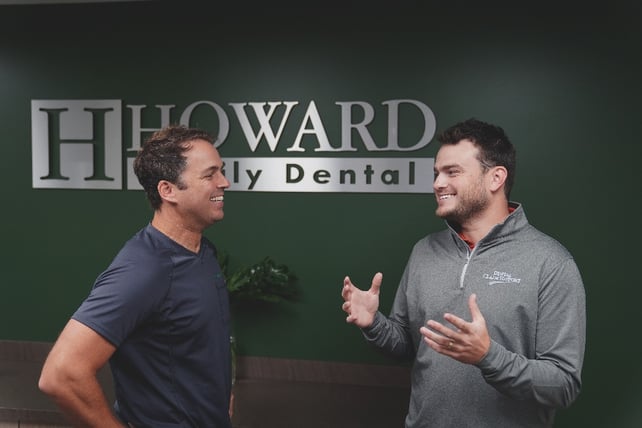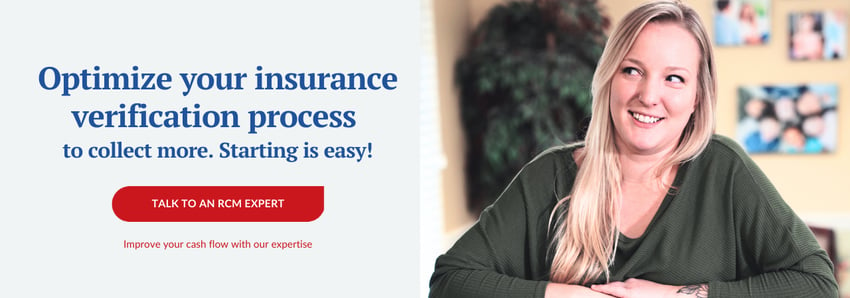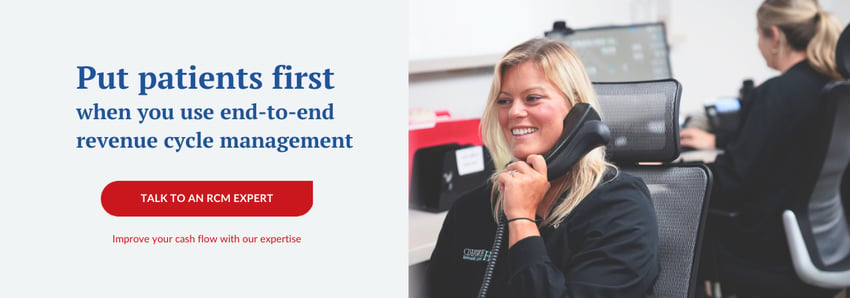There are two factors to your dental accounts receivable: your patient and insurance income. These are the two parties that pay your dental practice regularly. Do either of them owe you a large sum?
Decreasing dental accounts receivable is something dentists are always looking to do. We get it, you want the money you’ve earned and deserve it!
Dental Claim Support is a trust billing partner that helps dental practices do just that - collect what they’re owed. Our billers work to get easy claims income for dental teams so that they can focus on delivering amazing patient care that leads to collecting easily from patients.
Through this work, we’ve seen how dentists struggle to avoid becoming a bank that is constantly owed money. Decreasing dental accounts receivable is a popular goal among dentists because of how much it can halt the overall cash flow of a practice.
That’s why we’re sharing 8 tips for decreasing dental accounts receivable in your dental practice. This article will cover tips for decreasing patient and insurance accounts receivable so that your team can collect what it’s owed. By applying these tips to your dental team’s processes, you’ll be sure to collect more and worry less.
Let’s start with patient accounts receivable.
Patient accounts receivable
Patient billing is sensitive, and if you don’t have clear processes or protocols in place, it can be easy to accept IOUs from patients - which can lead to you never being paid. Here are some tips to avoid that and cut down your patient accounts receivable:
1. Verify patient benefits before the day of their treatment
This is the very first step of the entire dental billing process. When a patient calls to schedule an appointment, collect their insurance information. Once you get off of the phone, immediately log into the insurance portal and make sure all of their insurance information is up to date and accurate.
This is also the time to make sure they aren’t maxed out or are going to be in a place to pay the entirety of their bill out-of-pocket. And if they are - be sure to explain this to them before their appointment.
After you have reviewed the patient’s insurance benefits, you can call and give them an out-of-pocket estimate so that they can be prepared to pay at their appointment. This is a great way to ensure you collect from the patient without as much pushback.
2. Collect patient responsibility upfront
If the patient is going to be given any kind of numbing gel or something that could impair their communication, make sure to collect their out-of-pocket portion right before their treatment.
If it is a routine treatment, collect their out-of-pocket portion as soon as they are checking out. This will prevent you from sending bills in the mail that are less likely to be paid. Make sure you also collect all forms of payment - check, cash, and credit card.
Pro tip: Let your patients know what your payment protocol is on the phone when they schedule their appointment. This way they expect to pay right after their treatment and know what is coming. The fewer surprises the better.
3. Offer financing for patients
A great way to guarantee payment from patients is to offer financing options. This means you’d give patients the option to pay for their treatment in installments. This can be done by finding a third-party financing service that would handle this.
This is a great option for patients who show stress or concerns when they see their bill or hear their out-of-pocket estimate over the phone. It can ensure that you will be paid for your services though it may take time.
4. Have a payment portal on your website
This has become an increasingly popular option for dental practices that are modernizing other parts of their practice.
A payment portal is an easy way for patients to pay virtually for their treatment. This adds convenience to the patient paying, which could help with ensuring you’d get paid. This is also a better option than having your patients mail you a check.
The easier it is for patients to pay you, the more likely you are to receive payment.

Insurance accounts receivable
The key to cutting down your insurance accounts receivable is creating a process and investing in training. This means you have clear standard operating procedures (SOPs) for each step of the insurance billing process that everyone knows to follow.
Related: Why a profitable dental revenue cycle depends on a good dental billing process
This also means that your leader looks into formal billing and coding training for the team. Let’s dive in.
5. Create, batch, and submit claims within 24 hours of treatment
The dental insurance process is continuous, and it can never stop, or else the money stops. To decrease insurance accounts receivable, you need to avoid claim denials. This can be remedied through continuously creating, batching and submitting claims every day.
Our experts recommend starting the claims process within 24 hours of the patient’s treatment, and sooner if possible. This way, the claim is “fresh” and all of the information needed for the claim is easily accessible. Not to mention, the sooner you submit an insurance claim, the sooner it can be paid.
Having this process documented as an official SOP can be great for avoiding insurance claim denials and delays.
6. Working your insurance aging report a minimum of once a week
Speaking of processes - your team should have a designated day for working on the insurance aging report.
This is a tedious task, but it’s crucial for getting the money you’re owed by insurance companies - AKA reducing your dental accounts receivable.
Taking time to go through the insurance aging report, line by line to follow up on unpaid claims is hard work. And if it isn’t done weekly, the aging report can start to get long, causing more work in the long run. Plus, the longer a claim stays on the aging report the less likely it is to ever be paid by the insurance company.
Make sure you’re following up on the oldest claims first since their timely filing is likely to lapse soon.
7. Prioritize billing and coding education
Denials happen often because of a lack of education on proper billing and coding.
CDT codes are a complicated topic for dental professionals. They change every year, and the process of knowing when to apply them to a procedure is tedious.
The best way to combat this confusion is through formal training and education for the dental team. The more confident your team is with coding, the less likely they are to face claim denials due to inaccurate procedure coding.
In this training, your team could also learn tips and best practices for other billing skills like working the aging report and attaching supporting documentation to a claim.
Speaking of attachments, you should always over-explain on your insurance claim.
8. Always send supporting documents with your insurance claims
A good tip for making sure insurance pays your claim (and has less reason to deny it) is to always include every bit of information you can on your insurance claim.
This means attaching the right supporting documentation to an insurance claim. Supporting documentation can come in the form of x-rays, intraoral camera images, clinical notes, narratives, and procedure codes.
It’s always a good rule of thumb to over-explain the proof of the necessity for the treatment, rather than not. This is a huge reason claims get denied, and dental teams miss out on the money they’re owed. So make sure you know when and how to attach supporting documentation to your insurance claims.
Ready to learn how you can get easy insurance claims income?
Decreasing your dental accounts receivable means you get the money you’re owed. Whether that’s money from patients or insurance companies - these tips should help you feel confident in collecting what you’ve earned.
Dental Claim Support is a great tool to help specifically with decreasing your insurance accounts receivable. Our billers work with you to get your claims paid quickly and accurately.
To learn more about Dental Claim Support can get you fast, easy insurance income, schedule a call with one of our experts.
Related Posts
Dental revenue resources from Dental Claim Support
-1.jpg)



